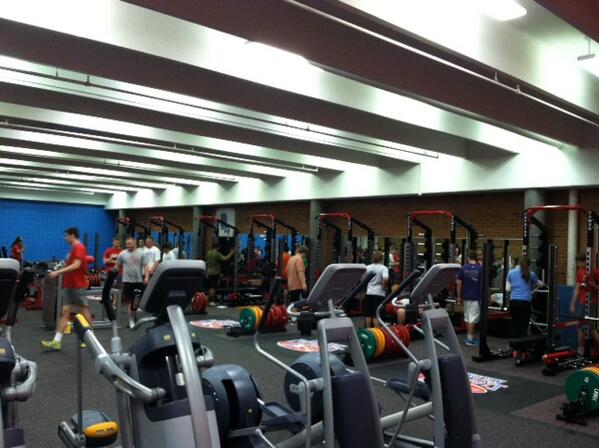There’s a problem with P.E. credit requirements

Basic Strength is a class enjoyed by many LHS students
November 14, 2018
Deciding what classes to take can be difficult, especially if you want to take a lot of classes. Students are always looking for ways to free up their schedule, but there is an issue that makes this difficult.
The problem is that students are still required to take a semester of a gym class, even if they participate in multiple seasons of a sport. This requirement hurts students while doing little to further their physical education. The South Dakota physical education standards mandate that high school student should: 1. Apply scientific concepts to sports, 2. Analyze the benefits of different activities and 3. Regularly participate in physical activity. Each of the standards is exceeded through participation in every high school sport.
The easiest standard for sports to meet is the third one, which requires students to regularly participate in physical activity and identify its worth for boosting self-confidence. This is easily achievable by a student who had completed two seasons of a sport because they are already demonstrating that they see the benefits of and are passionate about participating in a sport.
The second standard requires students to recognize the physical benefits of individual activities. This standard is also met by almost every athlete, especially one who participates in a sport that requires weight-lifting where you do exercises that target specific muscles. The first standard can be more difficult to meet, especially depending on the sport, but scientific concepts are applied in coaches’ programs. For example, a four-year cross country runner could almost certainly explain the difference between anaerobic and aerobic respiration, and how it applies to their sport. Each of these standards is met or exceeded by multi-year participation in a sport.
Opponents to sports counting as gym credit may claim that one season of a sport may not be enough for a student to meet physical education standards. School districts that exempt athletes from gym requirements, however, have policies in place to fix this problem. The Tucson Unified School District in Arizona, for example, requires students to take a test that analyzes their proficiency in physical education.
Gym class is only a semester, but it is a frustrating semester for a student who already spends over two hours a day exercising. It does not make sense to force students to take a gym class when they are already spending time outside of the school day to learn the same concepts. Revising this policy would prove helpful for students with full schedules who want to use their time as effectively as possible.








